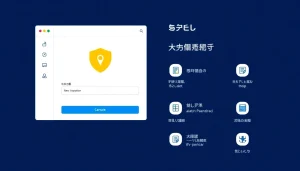Understanding the NVQ Level 4 Crane Supervisor Qualification
What Is the NVQ Level 4 Crane Supervisor?
The NVQ Level 4 Crane Supervisor qualification is a pivotal certification within the construction sector, tailored specifically for individuals supervising lifting operations. This accreditation ensures that supervisors possess the necessary skills and knowledge to manage crane operations effectively, including compliance with health and safety regulations, planning and implementing lifting strategies, and overseeing the work of operators and ground crew. The qualification is essential for those who aspire to hold responsible positions in construction, ensuring that all lifting activities are performed safely and efficiently.
Importance of the Qualification in the Construction Industry
In an industry where safety and efficiency are paramount, the NVQ Level 4 Crane Supervisor qualification plays a crucial role. With a deep understanding of crane operations, supervisory methods, and risk management procedures, qualified crane supervisors are integral in preventing accidents and ensuring smooth operations on construction sites. Moreover, construction companies increasingly require this qualification to mitigate risks and adhere to legal obligations, making it a key credential for job seekers aiming for advancement in their careers.
Eligibility Requirements for Aspiring Crane Supervisors
Candidates wishing to obtain the NVQ Level 4 qualification must meet specific eligibility criteria. Typically, applicants should have prior qualifications in the construction sector, such as an NVQ Level 3 in a relevant discipline. Additionally, they are expected to have practical experience in crane operations and a sound understanding of health and safety legislation. This prerequisite ensures that candidates are well-prepared to grasp the complexities involved in crane supervision.
Phrasing Key Questions for the NVQ Assessment
Types of Questions Typically Included in the Assessment
The NVQ Level 4 assessment features a variety of question types that challenge candidates’ understanding and application of crane supervision principles. These may include:
- Scenario-based questions that assess problem-solving skills in real-life situations.
- Technical questions requiring knowledge of crane mechanics and operations.
- Regulatory questions focusing on compliance with health and safety standards.
Understanding the types of questions is essential for effective preparation. Knowledge of lifting techniques, emergency protocols, and teamwork dynamics is critical, as these areas are often evaluated during the assessment.
Common Challenges Faced by Candidates
Many candidates encounter challenges during their NVQ assessments, including:
- Lack of familiarity with the exam format, leading to anxiety.
- Difficulties in applying theoretical knowledge to practical scenarios.
- Time management issues, particularly with long-form questions.
Addressing these challenges requires proactive preparation and a strategic approach to studying, ensuring that candidates feel both confident and competent on assessment day.
Effective Strategies for Answering Exam Questions
To tackle exam questions effectively, candidates can adopt several strategies:
- Understand the Question: Read each question carefully to identify key requirements and focus areas.
- Plan Your Response: Jot down bullet points or a brief outline before composing full answers to ensure a logical flow.
- Utilize Case Studies: Incorporate real-world examples from your experience to substantiate your arguments.
- Practice Time Management: Allocate specific time limits for each section to ensure all questions are addressed.
These strategies not only enhance answer quality but also promote a structured approach to assessment.
Study Materials and Resources
Recommended Books and Online Courses for Preparation
Preparation for the NVQ Level 4 assessment can be significantly bolstered through dedicated study resources. Recommended materials include:
- Textbooks: Look for titles focusing on crane operations and safety regulations, which provide foundational knowledge and insights.
- Online Courses: Many platforms offer courses specifically designed to prepare candidates for the NVQ Level 4 assessment. These often feature interactive components and assessments to gauge understanding.
Utilizing a variety of resources helps strengthen knowledge retention and understanding of complex topics.
Utilizing Practice Tests Effectively
Practice tests present an effective means of gauging knowledge and preparation levels. Candidates should consider the following:
- Regularly taking practice tests to familiarize themselves with the assessment style.
- Reviewing incorrect answers to identify knowledge gaps and focus subsequent study efforts on those areas.
- Simulating exam conditions by timing answers to build comfort and confidence under pressure.
By actively engaging with practice materials, candidates can enhance their readiness for the actual assessment.
Seeking Professional Guidance and Support
Acquiring professional guidance can offer invaluable insights into the NVQ Level 4 assessment process. Those preparing may benefit from:
- Study Groups: Collaborating with peers can provide additional perspectives and aid in understanding difficult concepts.
- Mentorship: Connecting with experienced crane supervisors can provide guidance tailored to specific areas of concern or interest.
- Consultation with Educators: Engaging with educators or trainers who specialize in NVQ qualifications can offer expert advice and resources.
Overall, leveraging professional insights significantly enhances the preparedness of candidates.
Best Practices for NVQ Assessment Success
Time Management Techniques During Exams
Mastering time management during the assessment is critical for success. Candidates can implement the following techniques:
- Prioritize Questions: Tackle questions that appear easier first to build momentum and confidence.
- Allocate Time: Divide total exam time by the number of questions to maintain a steady pace.
- Track Time: Keep an eye on the clock to avoid spending too long on any one question.
The ability to manage time effectively facilitates a more comprehensive approach, ensuring all questions receive sufficient attention.
Maintaining Confidence Through Preparation
Confidence is a significant factor in exam performance. Candidates should nurture their confidence by:
- Thoroughly Preparing: Comprehensive study and practice lead to increased self-assurance.
- Visualizing Success: Employ techniques such as positive visualization of completing the exam successfully.
- Maintaining a Positive Mindset: Surrounding oneself with supportive peers and mentors fosters a conducive learning environment.
Confidence plays a pivotal role in how candidates approach the exam, impacting both their performance and overall experience.
Understanding Assessment Criteria
Familiarizing oneself with the assessment criteria is essential for success. Candidates should consider:
- Reviewing the specific competencies and learning outcomes expected for each unit of study.
- Understanding the grading rubrics used by assessors to reward knowledge application and clarity.
- Engaging in discussions with instructors or mentors to clarify assessment standards.
Grasping the assessment criteria ensures that candidates can tailor their responses effectively and demonstrate their proficiency.
After the NVQ: Next Steps for Career Advancement
Exploring Further Qualifications and Certifications
Upon achieving the NVQ Level 4 qualification, candidates are encouraged to explore additional certifications that can further enhance their career prospects. Options include:
- NVQ Level 5 in Health and Safety: Building expertise in health and safety protocols offers a pathway into senior supervisory roles.
- NEBOSH Diplomas: These qualifications provide advanced understanding of health and safety management, making candidates more competitive.
- Specialized Crane Operation Certifications: Pursuing niche certifications can enhance one’s qualifications for specific crane types or lifting techniques.
Continual education leads to expanded career opportunities and increased employability.
Networking and Finding Employment Opportunities
Transitioning to the next phase of your career often hinges on effective networking. Candidates should consider:
- Attending construction industry events and seminars to connect with industry professionals.
- Joining relevant professional associations to access exclusive job listings and resources.
- Utilizing platforms like LinkedIn to connect with potential employers and fellow professionals.
Building a professional network opens doors to job opportunities, mentorship, and collaborations.
Continuing Professional Development in Crane Supervision
Continuous learning is vital in the ever-evolving construction industry. Candidates should prioritize:
- Participating in Workshops: Engaging in industry-relevant workshops helps maintain up-to-date knowledge of best practices and innovations.
- Seeking Feedback: Learning from experienced colleagues or mentors can guide ongoing improvement.
- Staying Informed: Reading industry publications and following current trends ensures awareness of emerging technologies and methodologies.
Commitment to professional development nurtures a competitive edge and enhances career growth opportunities.
For those seeking comprehensive guidance, preparation materials can significantly assist in navigating the NVQ Level 4 assessment successfully. Resources such as the NVQ Level 4 Crane supervisor answers provide essential insight and practice needed to excel in this qualification.


